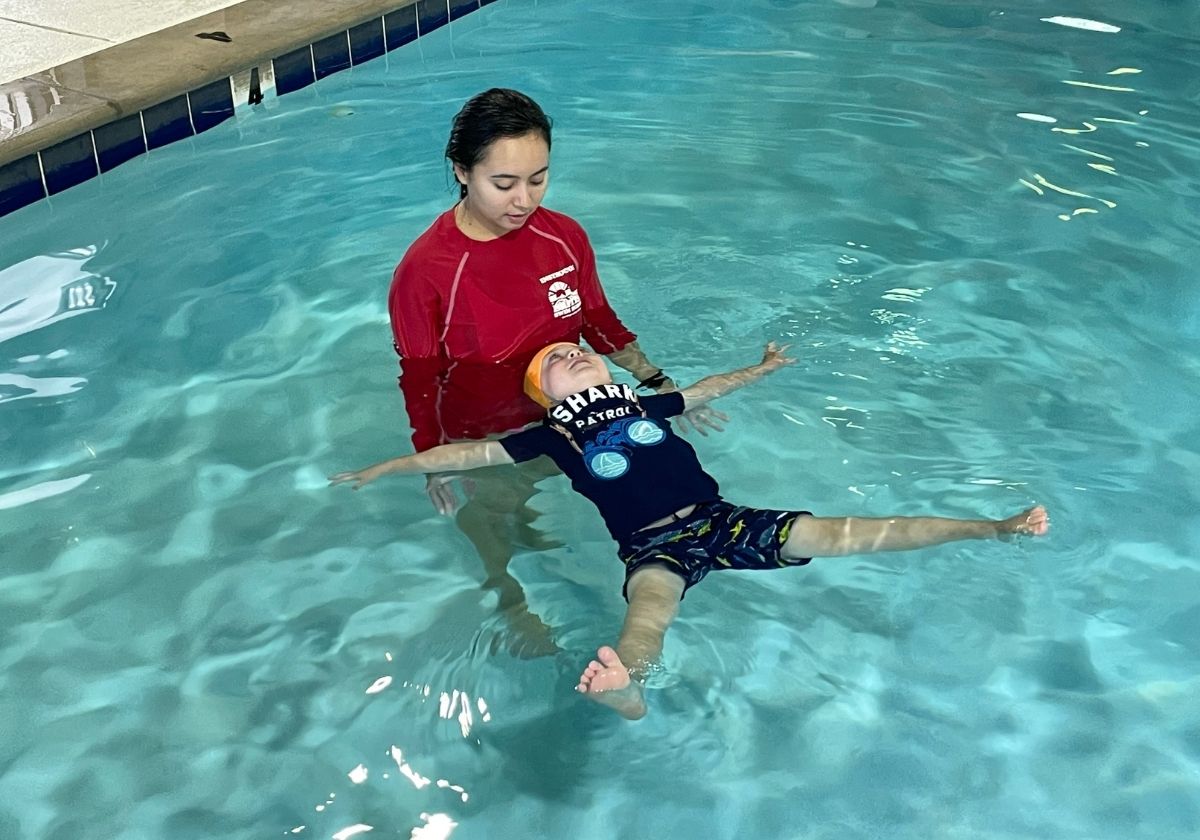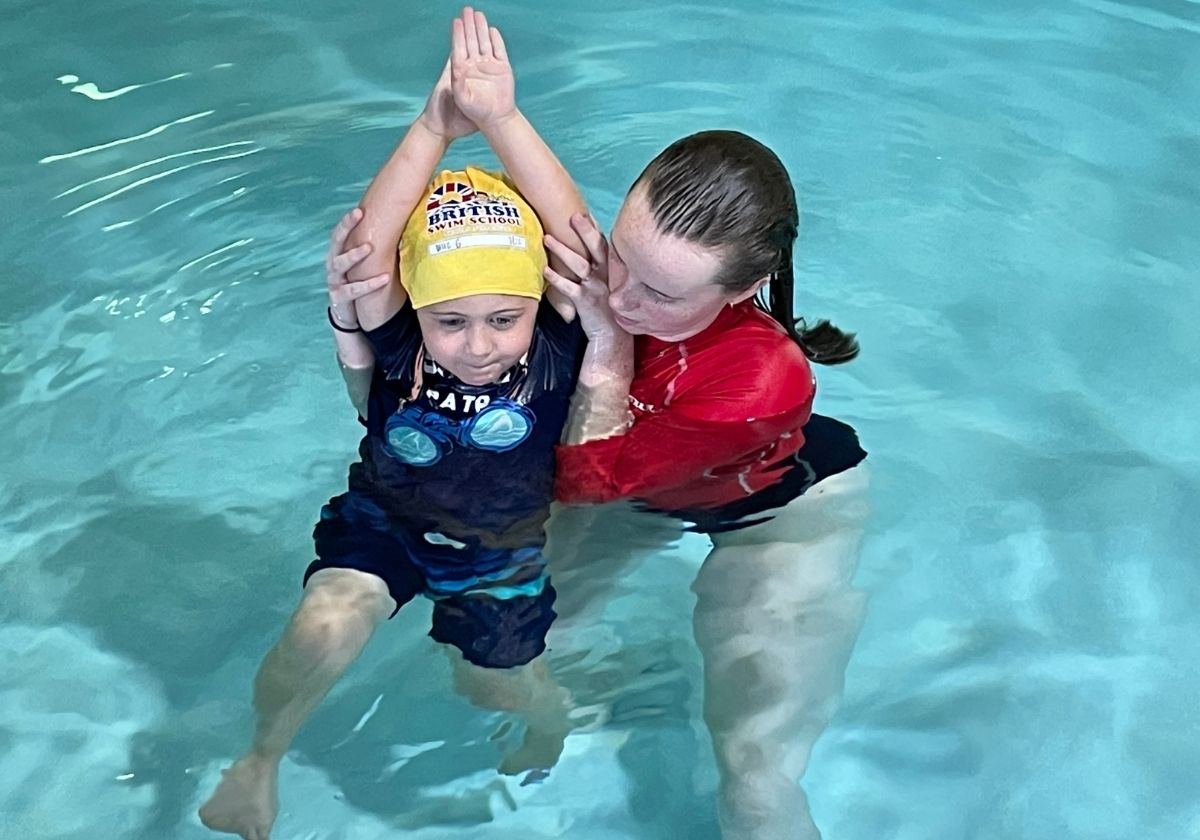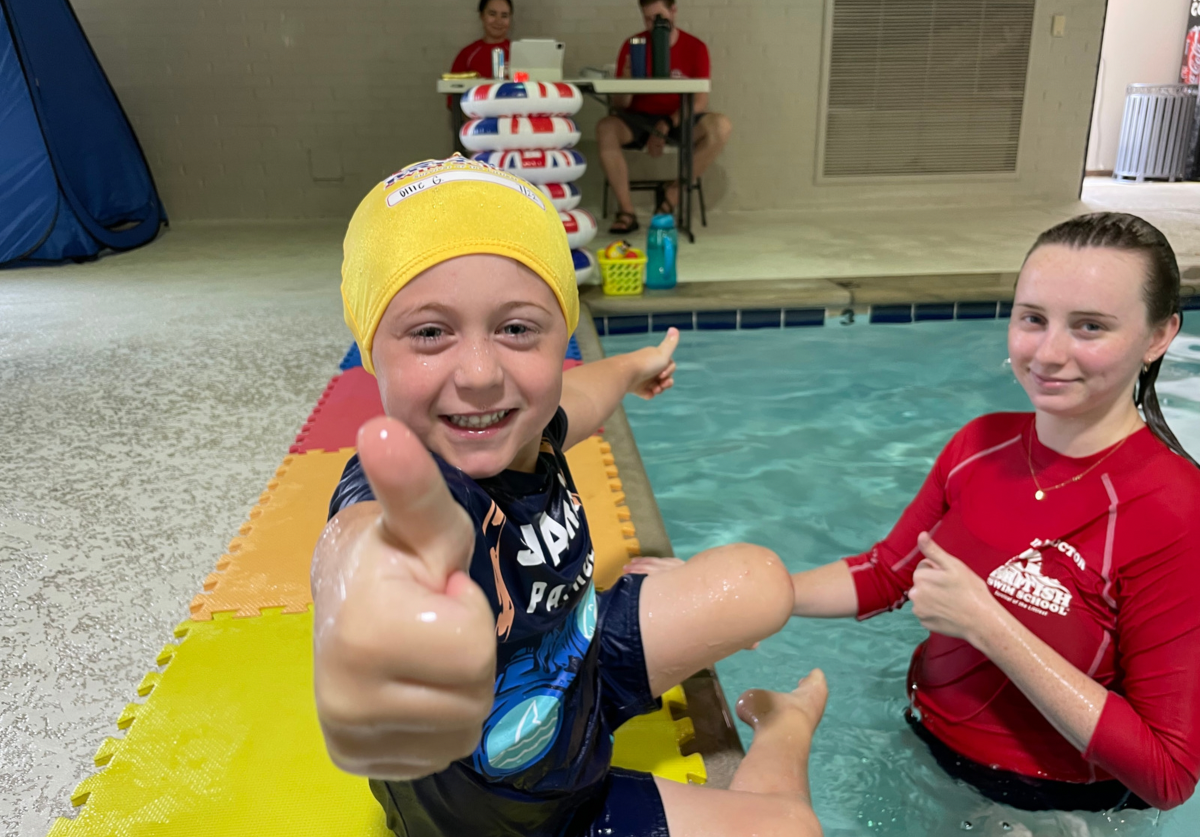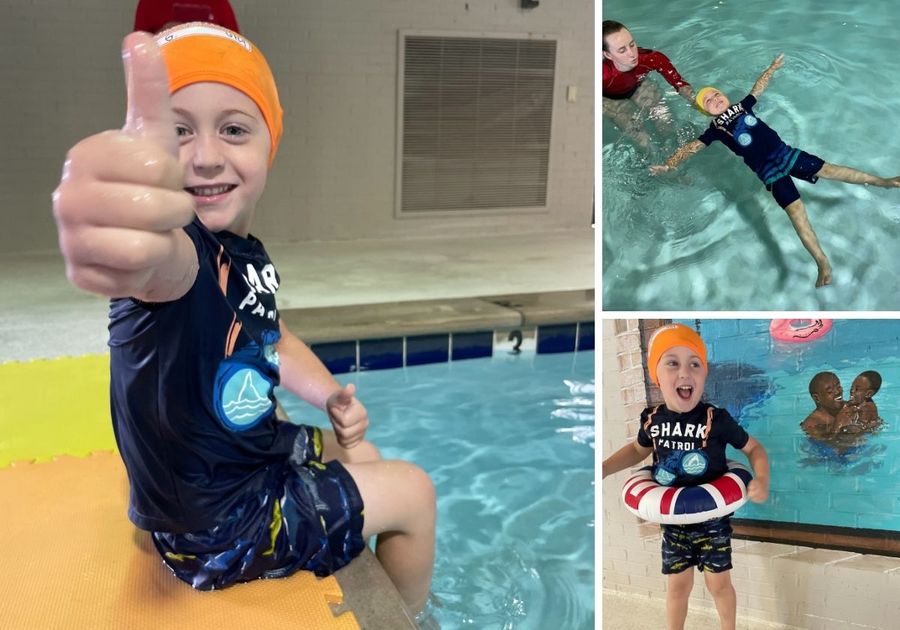I don't remember learning how to swim. My mom tells me I was jumping off a diving board without a life vest or float by the age of three. She said it was important to her that my sisters and I learn water survival as early possible and to never rely on floats. That's why she started putting us in the water from practically day one. When the time came for me to teach my son how to swim, I was going to do exactly what my mother did, and I was confident I would have my son treading water before he could talk. But, of course, things never happen quite the way we plan... especially in parenthood.
My son has never been afraid of the water. He just had zero interest in letting me teach him how to swim. By the time he turned five, it was obvious that whatever magic my mom worked on me was not working for us. But his lack of fear combined with his lack of water skills made this already nervous mom even more nervous about going to the pool. When I was given the chance to try out some lessons with British Swim School in Franklin, TN, of course, I jumped at the chance.
"No Tears, No Fear"
British Swim School has been teaching water survival to children and adults for as long I've been alive. They have programs for children as young as three-months-old all the way into adulthood. The instructors at British Swim School have all gone through intensive training. I felt very safe bringing my child to work with them on his water safety skills.
My son was placed in the Starfish program, one of British Swim School's water acclimation classes for ages 3 and up. His class meets once a week for thirty minutes and there are no more than four students per instructor. The small class size allows instructors to provide more individualized attention to each student. Other classes, like parent/child classes for younger ages, have a higher ratio of six students per instructor.
"No tears, no fear" is the main goal of Starfish, plus other skills like supported back-floating, full-submersion jumping from the wall, and independence in the swim ring. The focus is water survival, so Starfish isn't about learning to swim in the traditional sense of learning strokes. Rather, students begin to learn how to avoid panicking so they can roll over and back-float long enough for help to arrive. On my son's very first class, he readily back-floated with the coach's support, proving my earlier statement that he had no interest in letting ME teach him how to swim.
 |
Mastery-Based Learning
Each class at British Swim School is mastery-based, which means when a student masters all five objectives for that level, they move up to the next. The school provides color-coded swim caps for each level--Starfish is orange, Minnow is yellow, and so on. As a former teacher, I can appreciate how this approach helps students feel a sense of achievement as they progress through each program.
While water safety is a serious endeavor, British Swim School strives to make the learning experience happy and fun. They give lots of high-fives, sing songs, and use catchy terms that are easy for kids to remember. My son loved learning how to do "shark fins" to swim back to the wall and "monkey walk" along the edge of the pool. The instructors are always calm and patient, and they really make all the kids feel at ease in the water.
 |
Students are allowed to learn at their own pace. The kids are challenged, but never forced to complete a task if they don't feel ready. My son zipped through Starfish and earned his yellow Minnow cap in just a few short weeks. He was so proud! I liked the fact that we weren't locked into the same level for a certain number of classes. When they are ready to move up, they move up. If they need more time, that's okay too. British Swim School focuses on the swimmer's needs first and foremost.
 |
Why British Swim School?
As parents, we don't like to think about water accidents, but they can and DO happen even with the most observant parent. British Swim School makes it clear starting with the very first lesson that water safety is their #1 priority. As I watched my son laughing and smiling with his instructors, I breathed easier knowing that while he was having fun, he was also learning life-saving skills.
I was lucky to have a chance to try out British Swim School, and we plan to keep up our weekly classes all year long so we don't lose momentum. If my son decides he wants to keep going into the competitive levels, we know we have that option available, but right now we are just taking it one lesson at a time.
Participating in a swimming program that is catered specifically to my son's needs gives me so much peace of mind as a parent--and it's okay that I'm not the one teaching him. He is gaining vital safety skills that will hopefully also foster a lifelong love of swimming.
Disclaimer: For the purposes of writing this article, the writer received complimentary swim lessons for her child. However, all of her opinions are her own.



